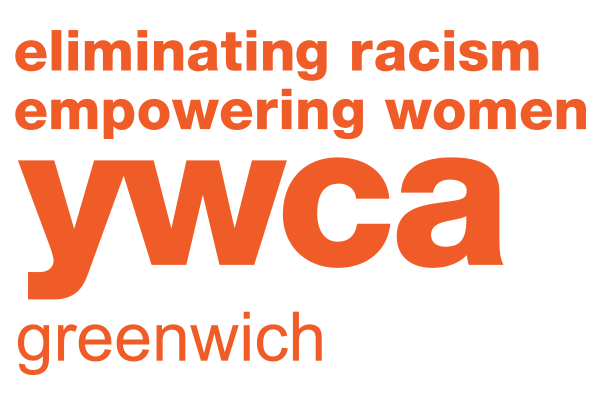
8 Desk Friendly Exercises and Stretches for a Healthier Workday
February 21, 2024
Understanding and Managing Delayed Onset Muscle Soreness
March 14, 2024The Sweet Truth: Understanding Sugar Consumption and Its Impact on Health
In a world where sweet treats are readily available and often irresistible, it's easy to fall into the trap of consuming too much sugar. From sugary snacks to sweetened beverages, the average American diet is inundated with added sugars, leading to a host of health issues. But what exactly is the impact of excessive sugar consumption, and how can we make healthier choices to curb our intake?
The Sweet Stats
According to the American Heart Association, the average American consumes around 17 teaspoons, or 71 grams, of added sugar per day. This staggering amount exceeds the recommended daily limit by more than double. What's even more concerning is that much of this sugar isn't just coming from the obvious sources like candy and soda; it's hidden in processed foods such as bread, sauces, and even seemingly healthy snacks like protein and granola bars.
The Bitter Truth
Excessive sugar consumption has been linked to numerous health problems, including obesity, type 2 diabetes, heart disease, Alzheimer’s, chronic inflammation, and even certain cancers. Furthermore, too much added sugar in your diet can damage your liver, similarly to the way that alcohol can. About a third of American adults and 13 percent of children have nonalcoholic fatty liver disease, a condition linked to added sugar consumption that is on the rise and that can progress to serious, even deadly, liver illness.
We’ve all seen the beer belly associated with drinking too much alcohol. Consuming too much added sugar can lead to a similar condition called “sugar belly,” in which your waist is bigger than your hips. Sugar belly can arise when the liver repeatedly detects more fructose, a form of sugar found in many processed foods, than our bodies can use. To deal with it, the liver breaks down the extra fructose and changes it to fat globules, which are then exported into the bloodstream and deposited around your internal organs and midsection.
Finally, the scientific community is increasingly acknowledging the addictive nature of the fructose in processed foods and beverages. Brain scan studies show that fructose affects the dopamine system, a messenger center in the brain that controls how we experience pleasure. Eating lots of added sugar can create changes in the brain similar to those found in people who are addicted to cocaine and alcohol, and it’s one reason so many of us find ourselves craving sweets.
The Hidden Culprits
One of the biggest challenges in reducing sugar intake is identifying where it hides in our food. Many processed foods, even those marketed as "healthy" or "low-fat," are loaded with added sugars to enhance flavor and prolong shelf life. Ingredients like high-fructose corn syrup, dextrose, and maltose may not sound like sugar, but they're all forms of it, contributing to our daily intake without us even realizing it. In fact there are over 250 different names for sugar found in just U.S. food products alone.
To amplify the deception, descriptive terms such as “organic”, “local”, “fair trade“, or “non-gmo“ have recently been added to sugar names by food manufacturers. These descriptive terms don’t change the chemical structure of the sugar; they are added to make the sugar more appealing to the consumer and have little or nothing to do with how the sugar is metabolized.
Naturally Sweet
While added sugars should be limited, not all forms of sweetness are created equal. Natural sugars found in fruits come packaged with essential vitamins, minerals, and fiber, making them a healthier choice compared to processed sugars. When you eat a strawberry or other fruit, you are eating fructose in its natural state with its fiber structure still intact, which slows absorption and the rate at which sugar enters your bloodstream. So yes, it’s O.K. to eat fruit! Your body can handle fructose when it’s eaten as whole fruit.
But the fructose found in ultraprocessed foods and beverages is concentrated from corn, beets and sugar cane, and much or all of the fiber and nutrients have been removed. Without the fiber to slow it down, your body gets a big dose of fructose that can wreak havoc.
When in doubt choose unprocessed, whole fruits such as berries, apples, and oranges when you are looking for a sweet treat to satisfy your craving.
Recommended Intake
So, how much sugar is too much? The American Heart Association recommends limiting added sugar intake to no more than 6 teaspoons (25 grams) per day for women and 9 teaspoons (38 grams) per day for men. For children, the recommended limit varies depending on age, but generally falls between 3-6 teaspoons (12-25 grams) per day.
Be aware though that these are the upper limits of what is considered healthy to consume. In reality your body requires only 5-8 grams of sugar a day depending on your level of activity. Yes, this number seems unbelievably low based on how normalized we have become to high sugar level in our foods. For example a single 20oz bottle of Gatorade contains 34 grams of sugar. This one bottle contains 4-7x more sugar than your body needs in a day and actually has enough to satisfy your sugar intake for an entire week.
Remember the sugar that your body does not need turns to fat as a form of stored energy that your body hopes you will use later during high energy activities. If you want to burn more fat than your store, decreasing your sugar intake so your body can use your already stored fat is the best way to start.
Healthy Habits
Reducing sugar intake doesn't mean depriving yourself of all sweets. Instead, focus on making small, sustainable changes to your diet:
- Read labels: Check ingredient lists for hidden sugars and opt for products with little to no added sugars.
- Choose whole foods: Incorporate more whole fruits and vegetables into your diet to satisfy sweet cravings naturally. Likewise, try to limit the number of packaged and/or processed foods you keep in your kitchen.
- Limit sugary drinks: About 40% of the added sugar in our diet comes from sweet liquids. The goal of drinking is to quench thirst, not satisfy the taste buds. It may be time to retrain your brain to stop expecting a jolt of sweet when you take a drink. Swap out sugary sodas and juices for water, sugar free seltzers, or herbal tea.
- Cook at home: Prepare meals from scratch whenever possible, allowing you to control the amount of sugar added to your food. Recipes calling for added sugar can usually be cut in half, if not more, and will still provide the sweetness you are looking for. Opt for coconut sugar when you can as it contains fiber.
- Practice moderation: Enjoy sweets occasionally as part of a balanced diet, but be mindful of portion sizes and frequency. Yes, you can treat yourself but try to make it a once a week reward instead of an everyday habit.
Understanding the impact of sugar on our health is the first step toward making positive changes to our diet. By being mindful of our sugar intake, choosing whole foods over processed alternatives, and adopting healthy eating habits, we can reduce our risk of chronic disease and improve our overall well-being. So let's savor the sweetness of life in moderation, one mindful bite at a time.
Garrett Withiam, ATC
Assistant Director of Health & Fitness
Personal Training Manager




